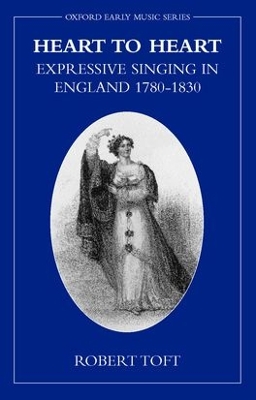Early Music
1 total work
This book establishes the principles of interpretation that singers active in England (both foreign and English) applied to recitatives, arias, and songs, by composers such as Handel, Mozart, and Rossini. Expression lay at the heart of persuasive singing during the late eighteenth and early nineteenth centuries and Robert Toft here ably places the concept and its practices in a broad cultural perspective. Singing was related closely to speaking in this period: when
the techniques of delivery that were common to both arts (emphasis, accent, tone of voice, pauses, breathing, and gesture) are combined with resources peculiar to singing (portamento, messa di voce, tempo, rubato, vibrato, and ornamentation), the style which emerges differs markedly from that of the
late twentieth century.
Most singers today perform the repertoire of the late eighteenth and early nineteenth centuries, but until now no book has addressed the principles which governed song performance in this period or shown how historical understandings may be used to move and delight modern audiences.
the techniques of delivery that were common to both arts (emphasis, accent, tone of voice, pauses, breathing, and gesture) are combined with resources peculiar to singing (portamento, messa di voce, tempo, rubato, vibrato, and ornamentation), the style which emerges differs markedly from that of the
late twentieth century.
Most singers today perform the repertoire of the late eighteenth and early nineteenth centuries, but until now no book has addressed the principles which governed song performance in this period or shown how historical understandings may be used to move and delight modern audiences.
